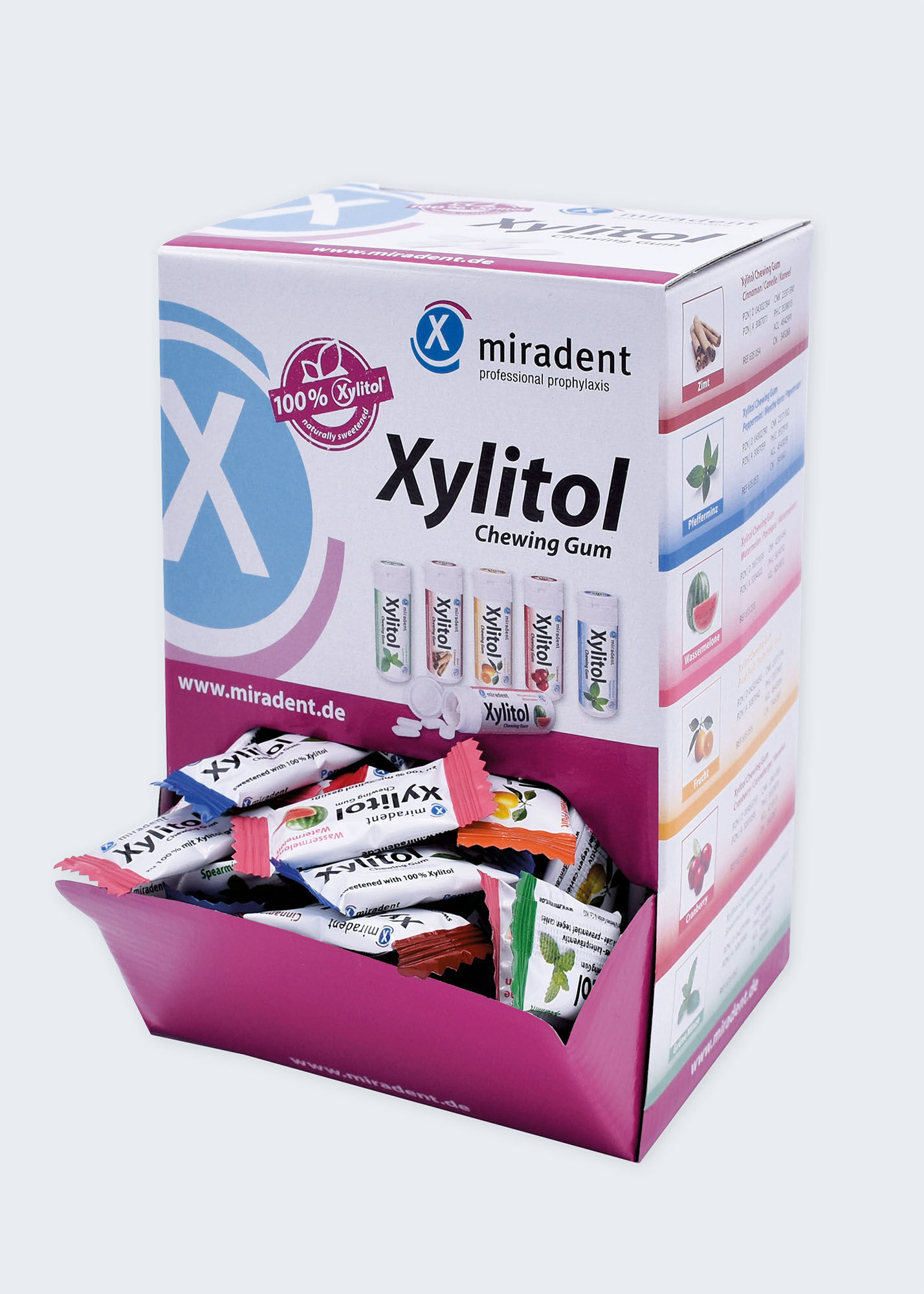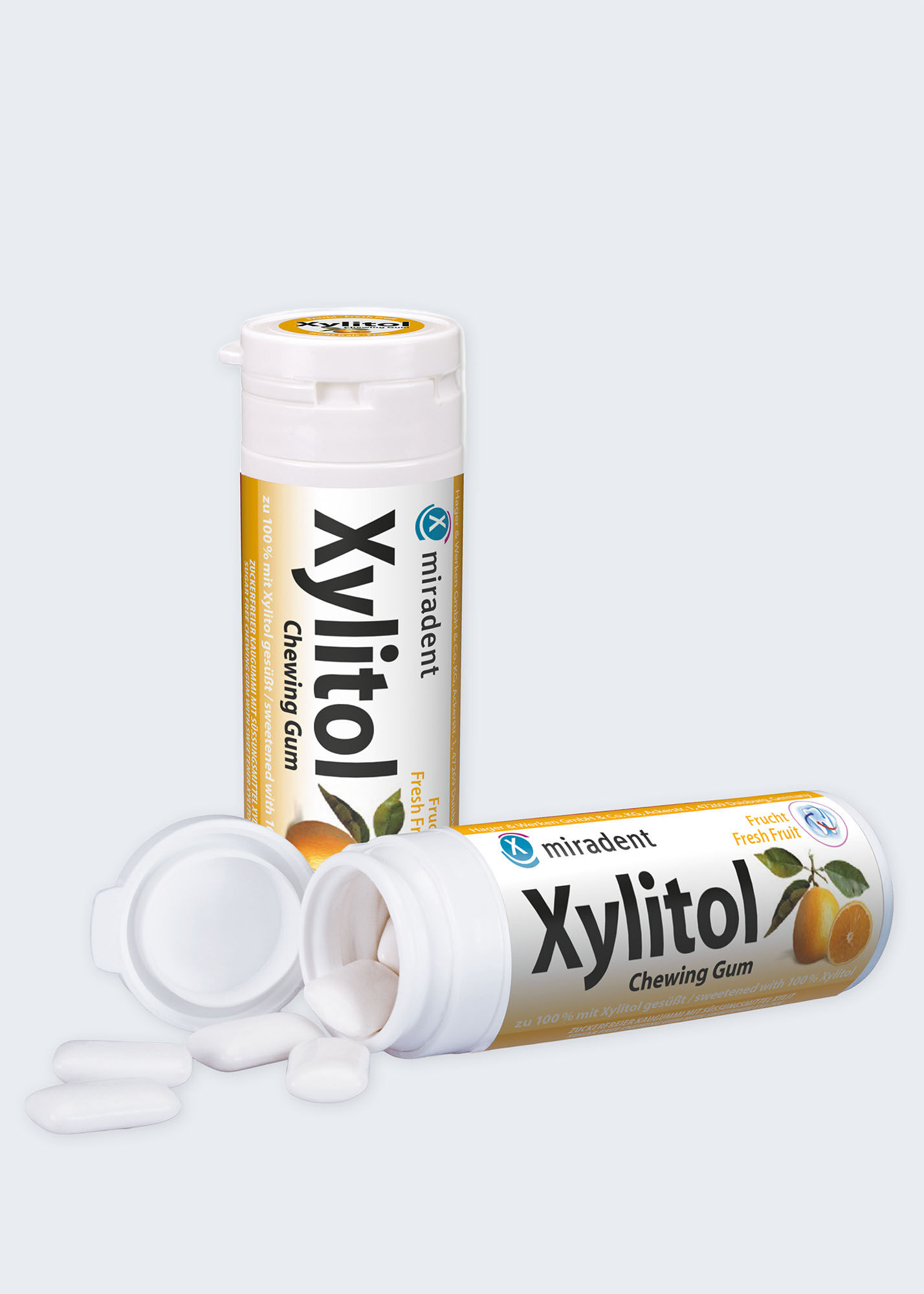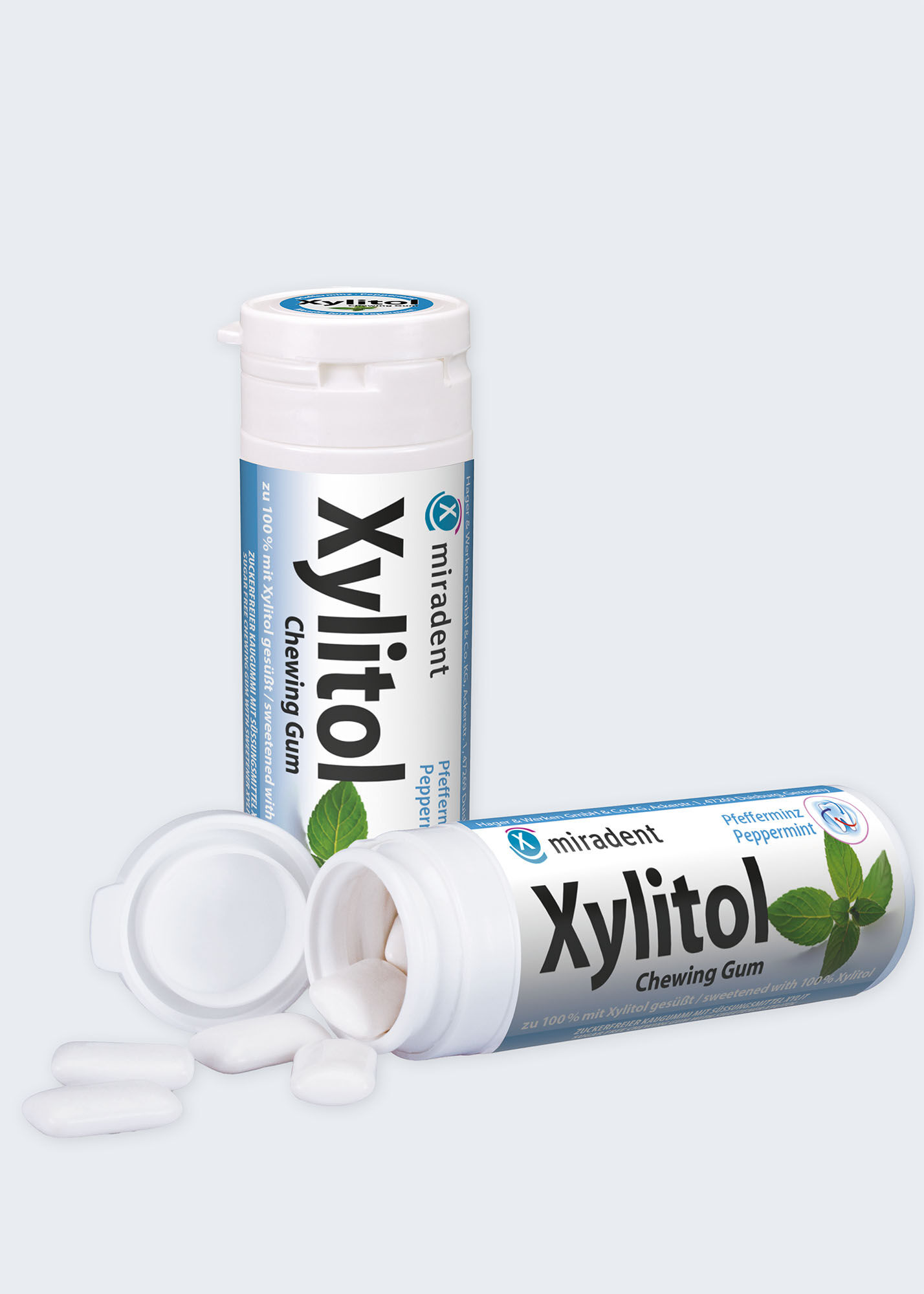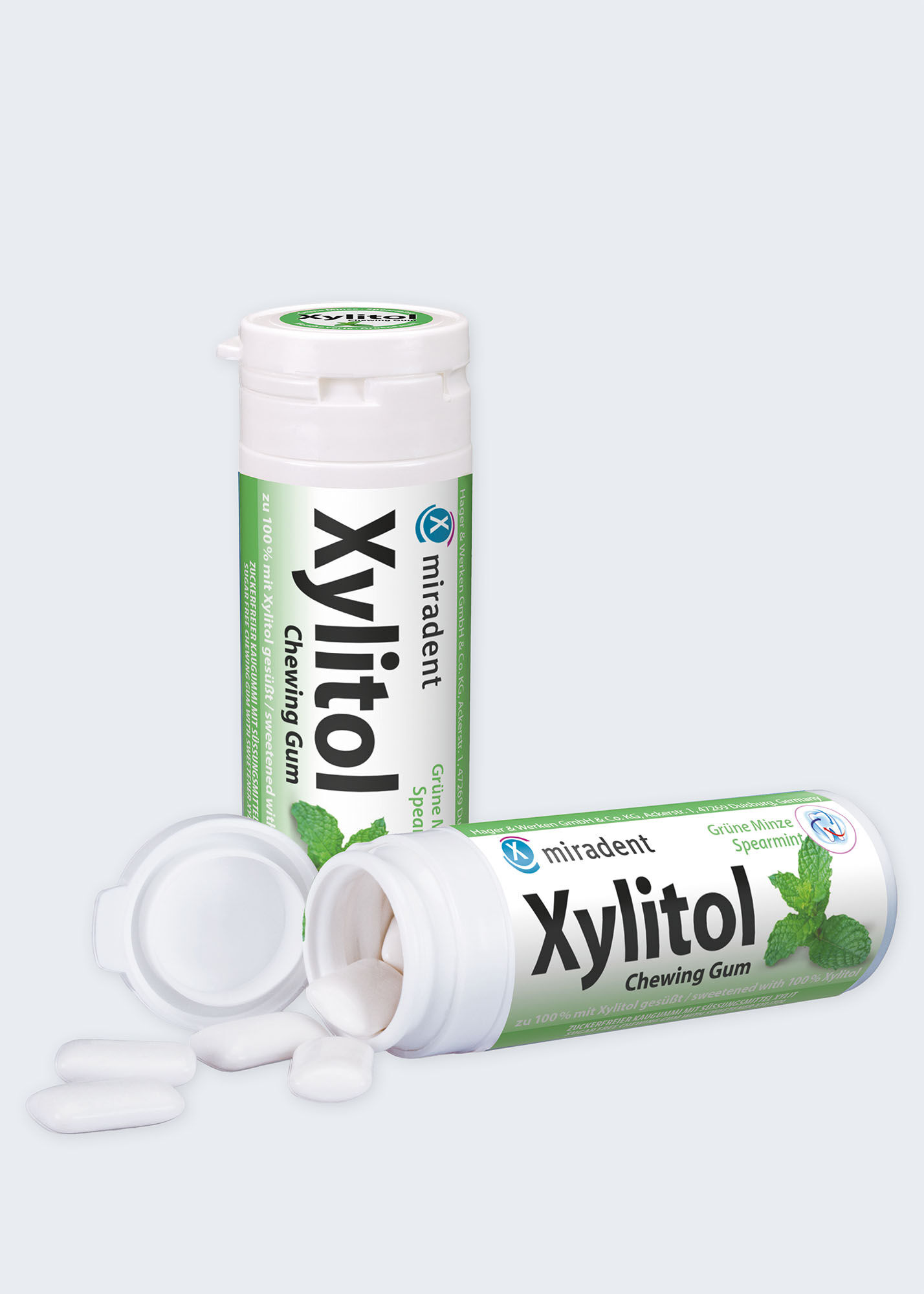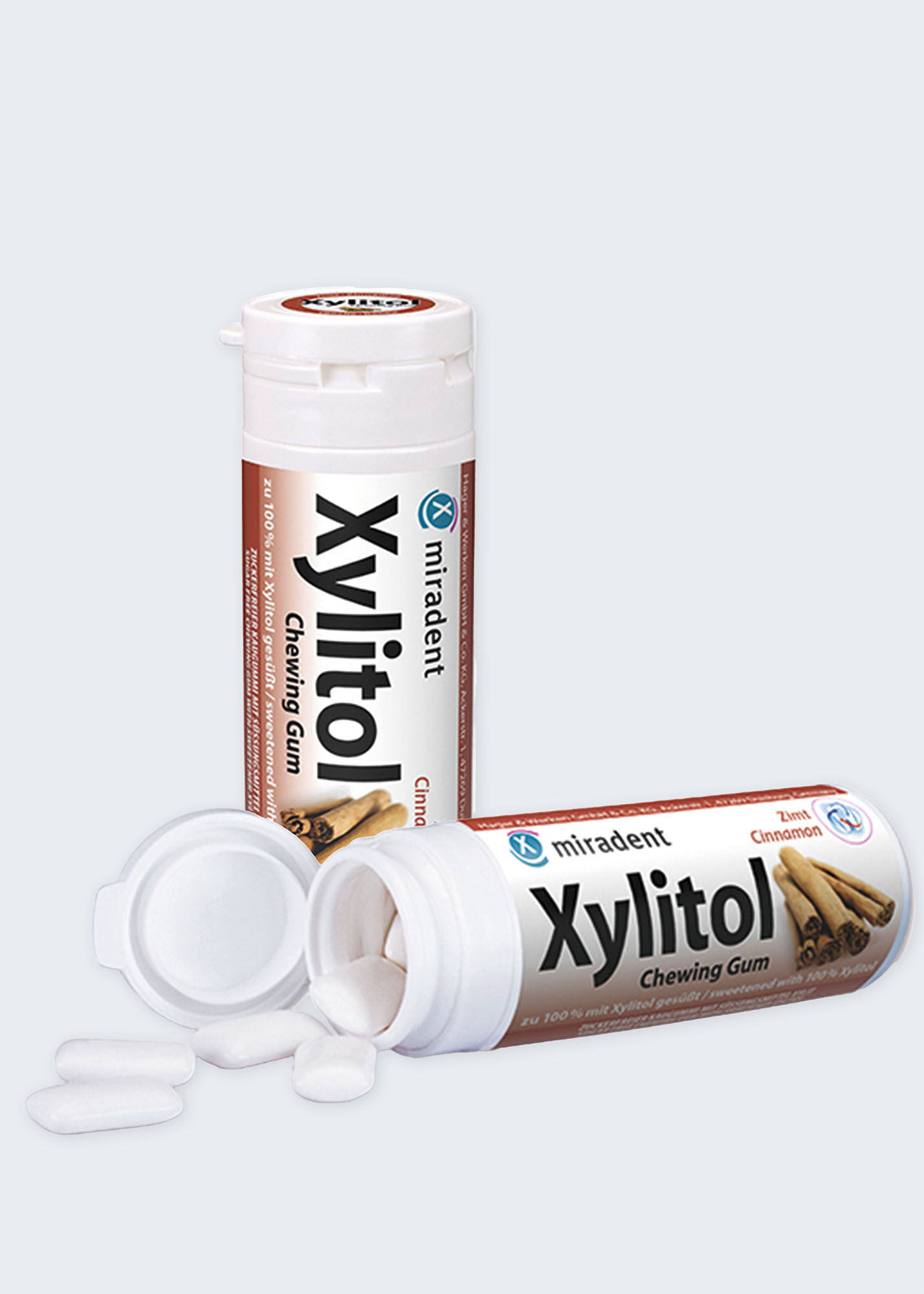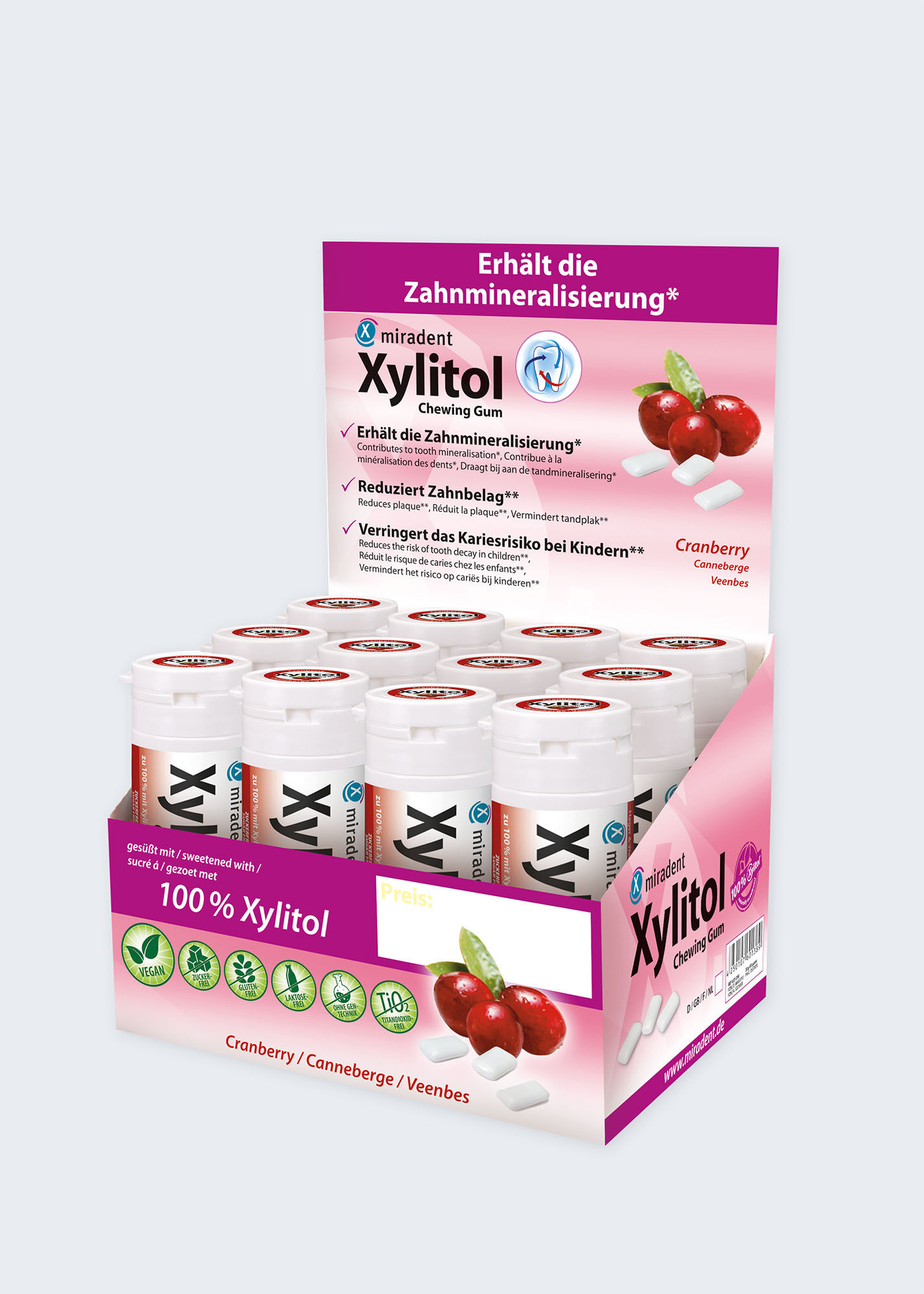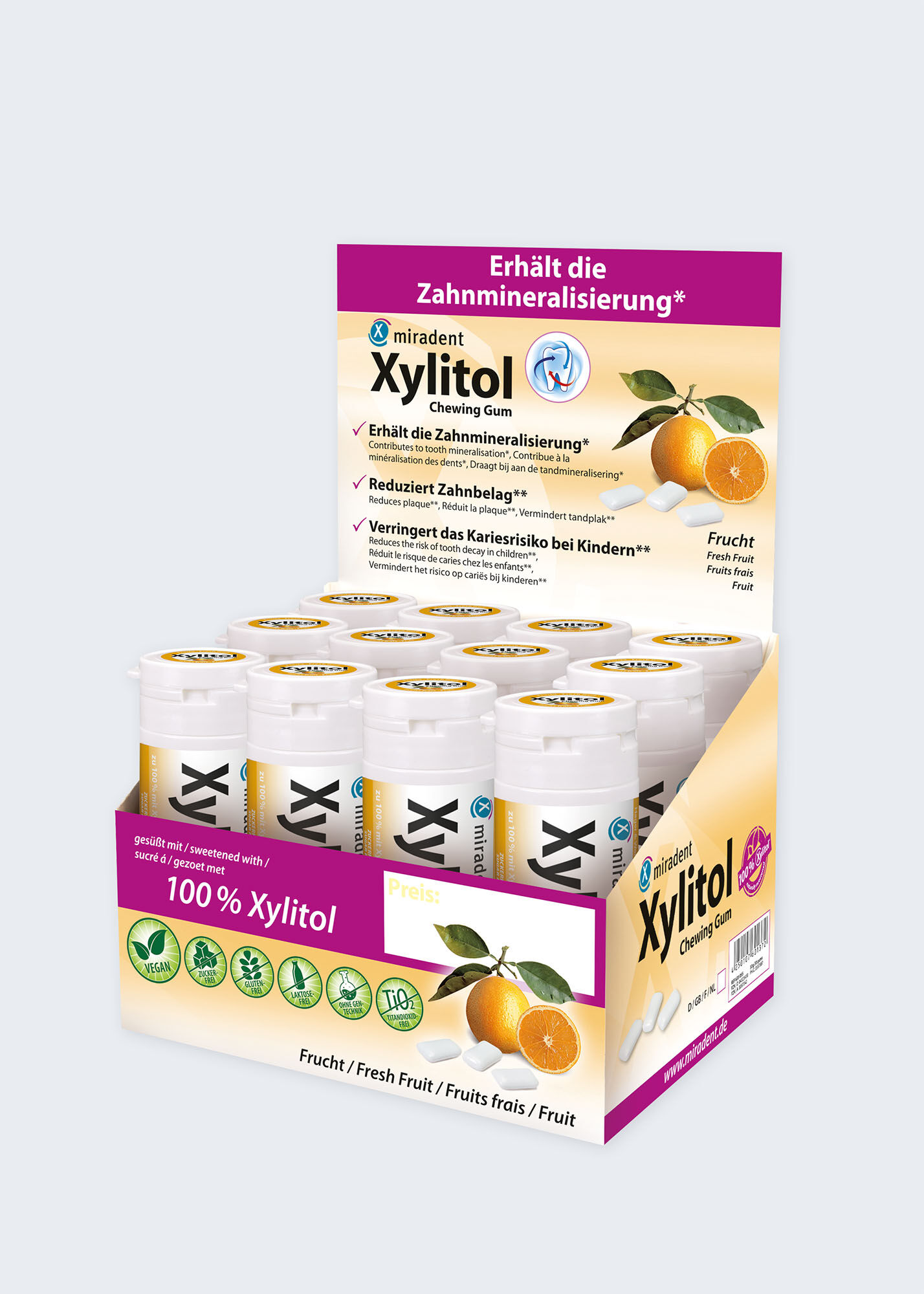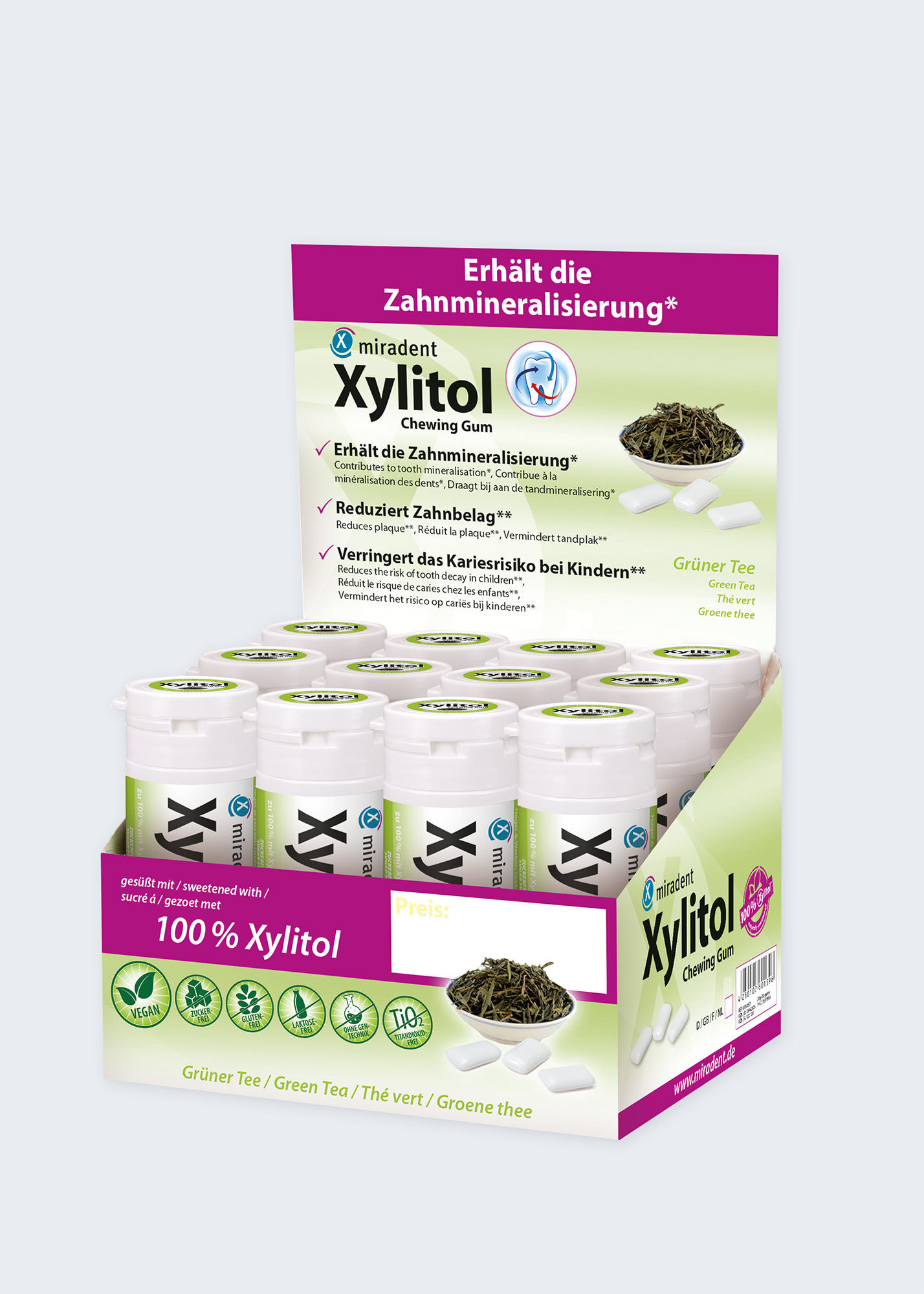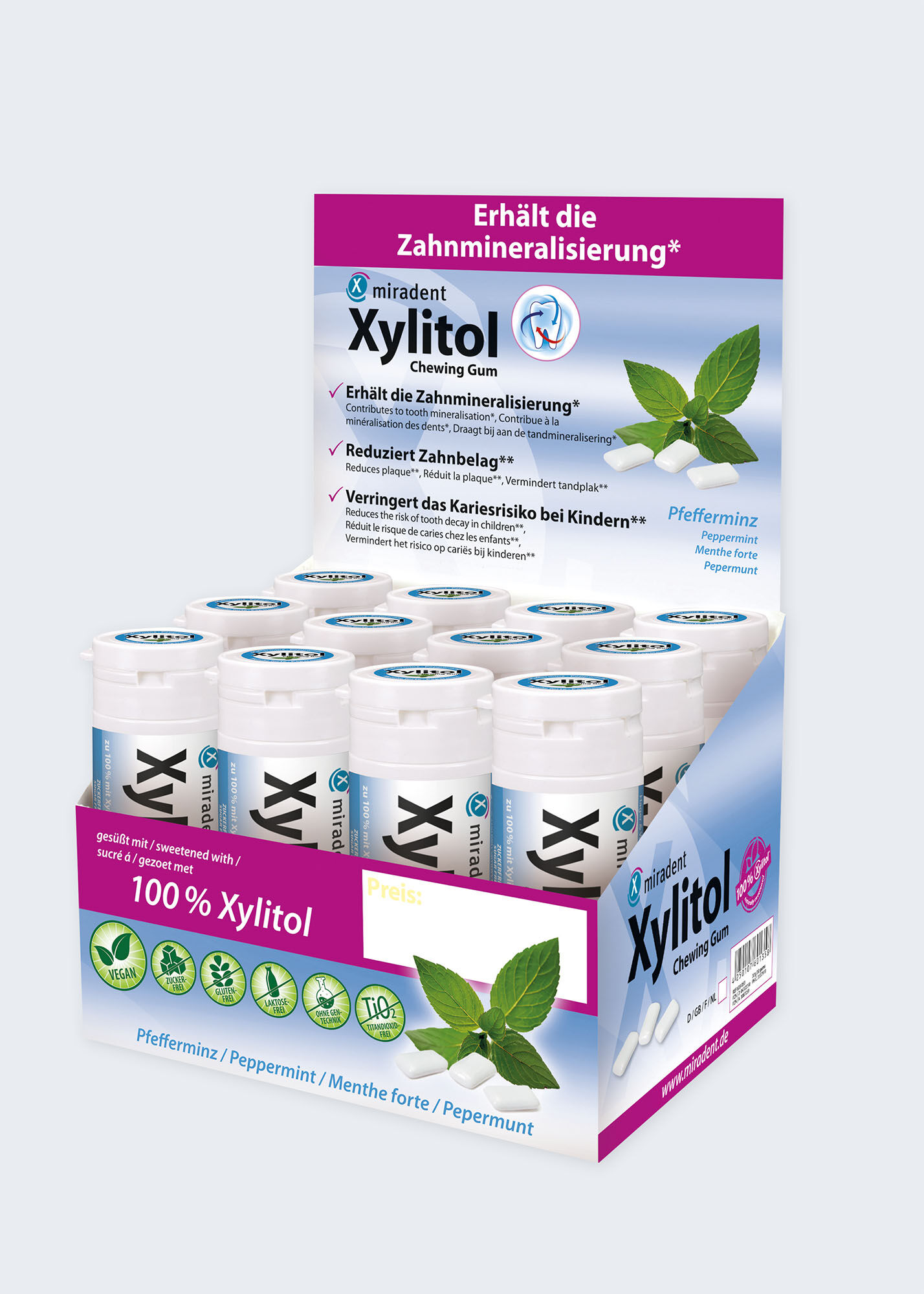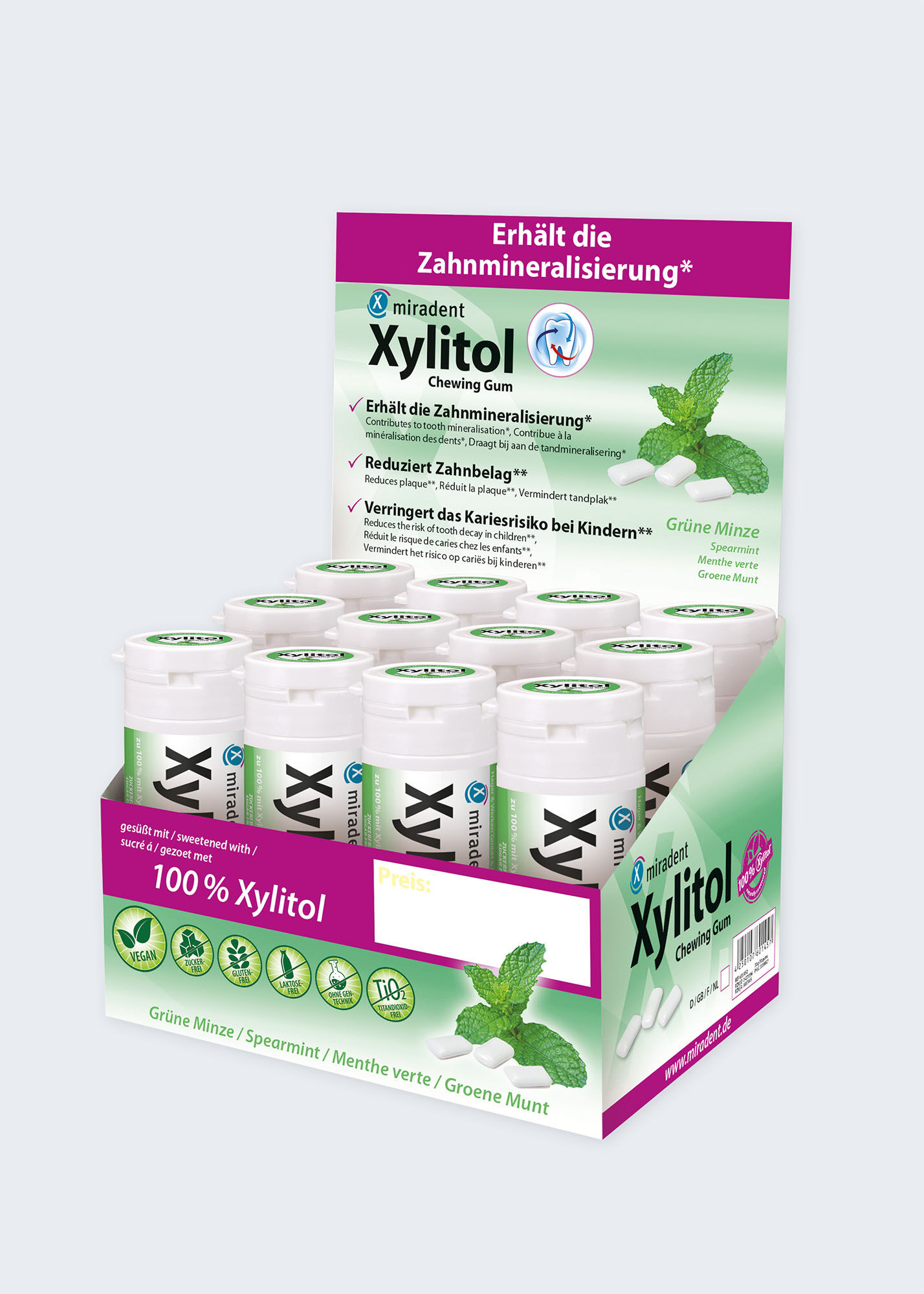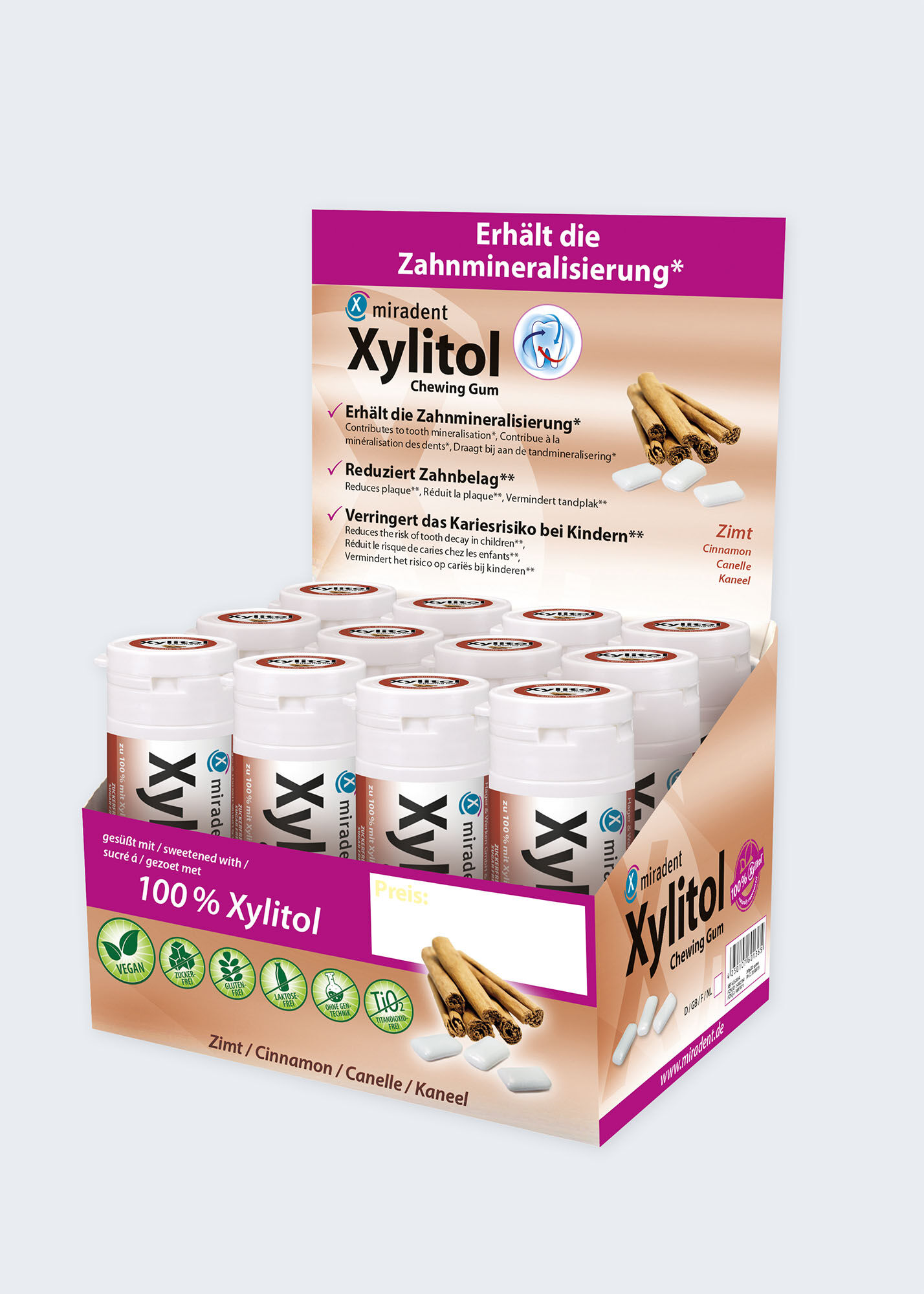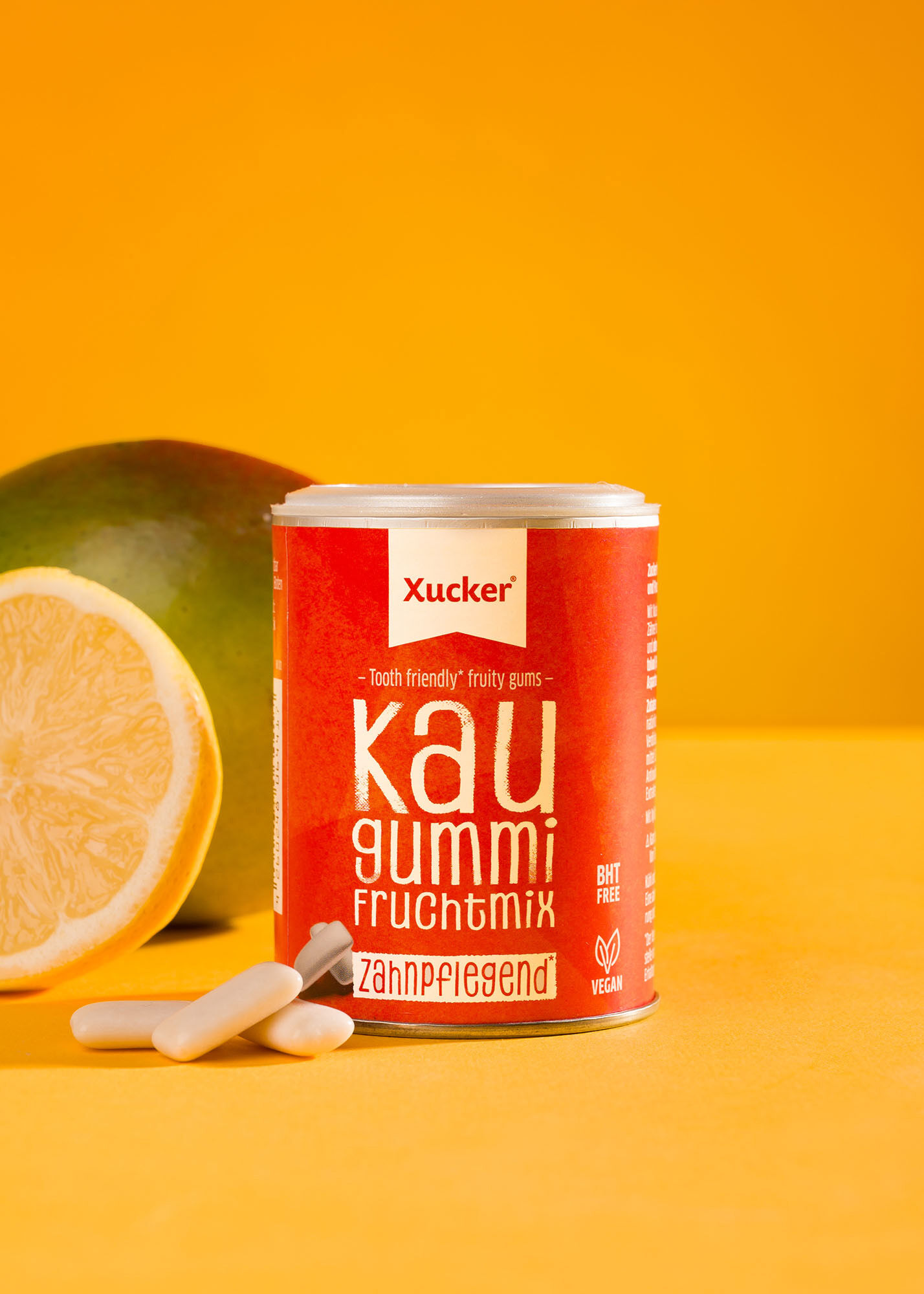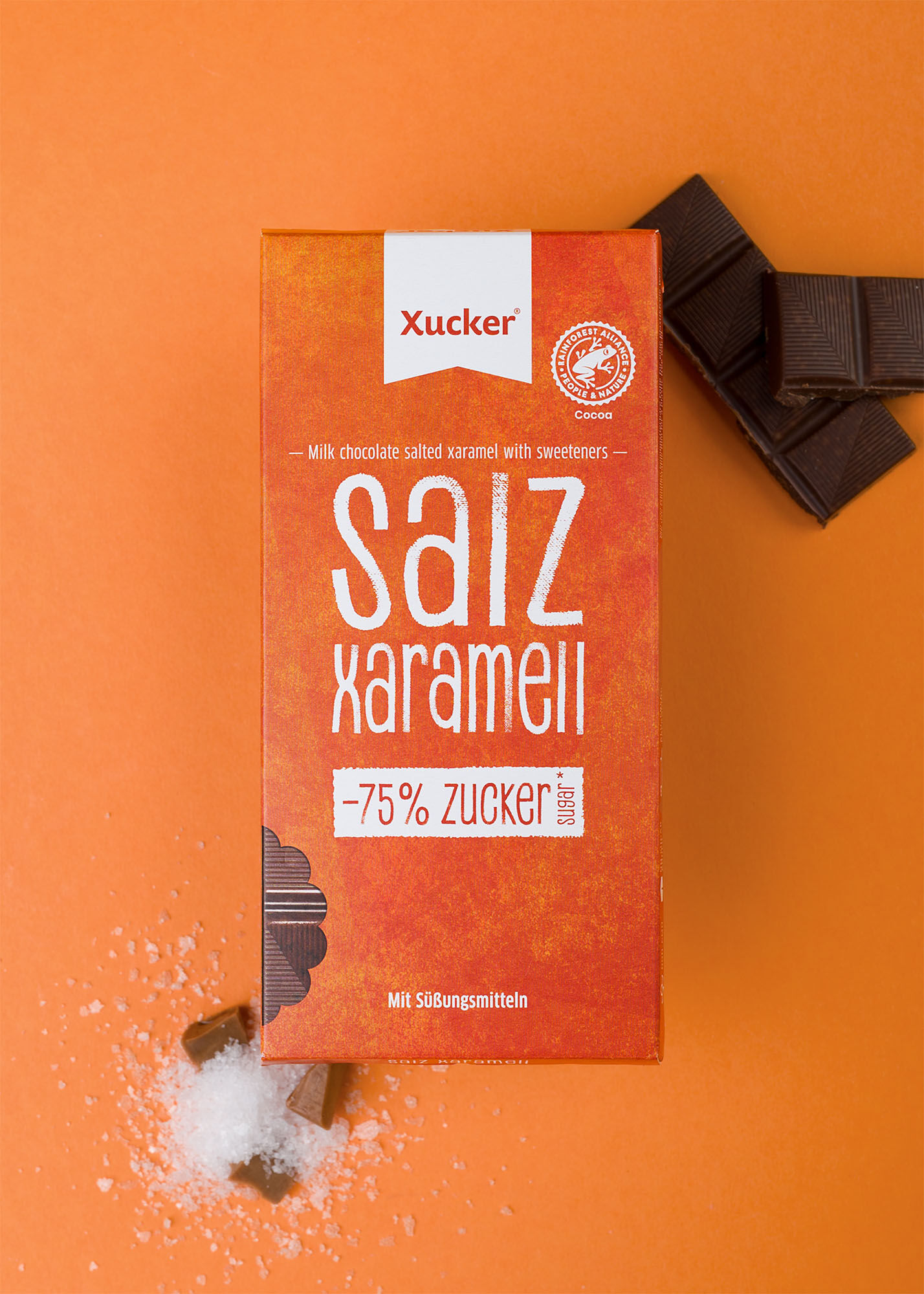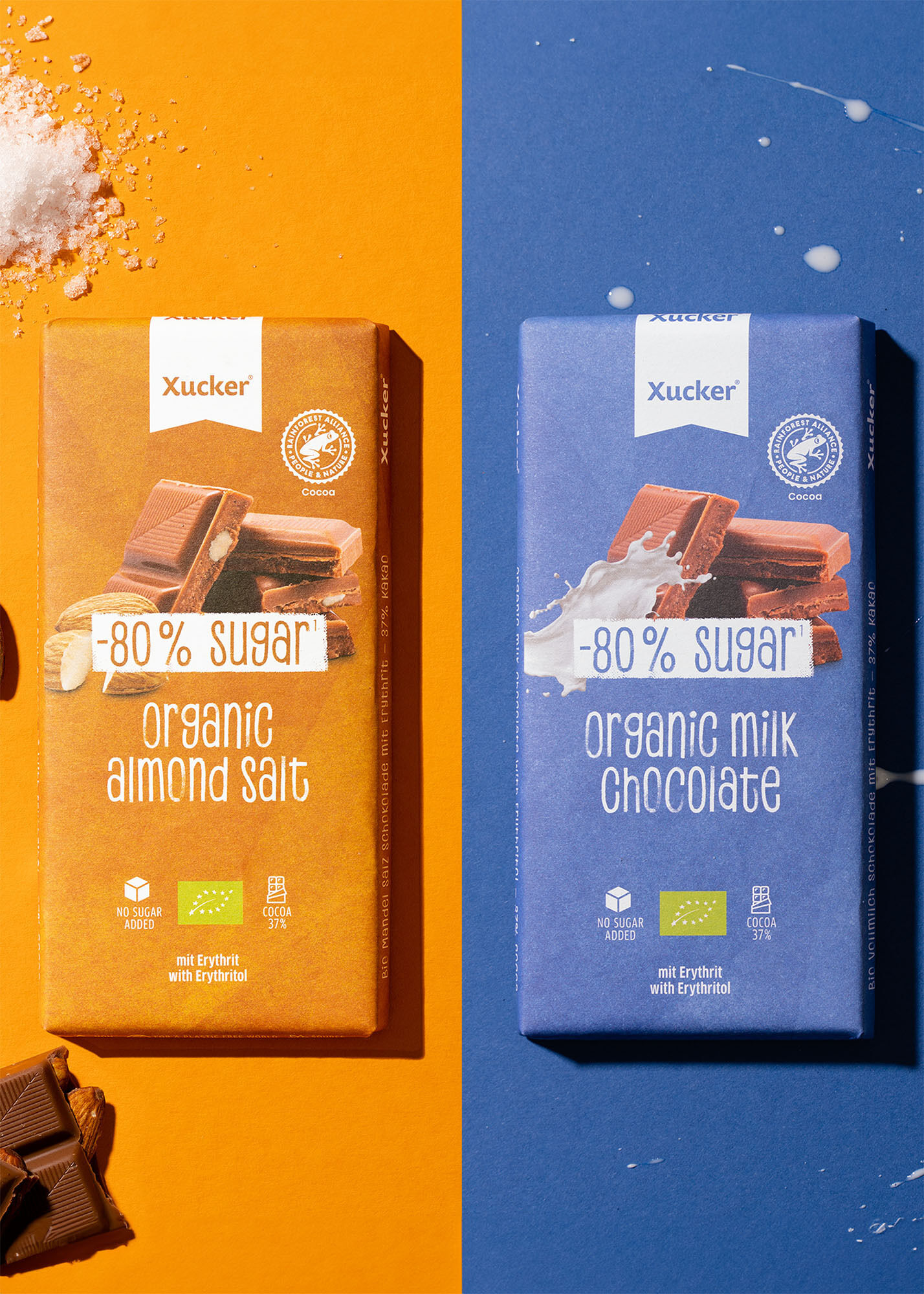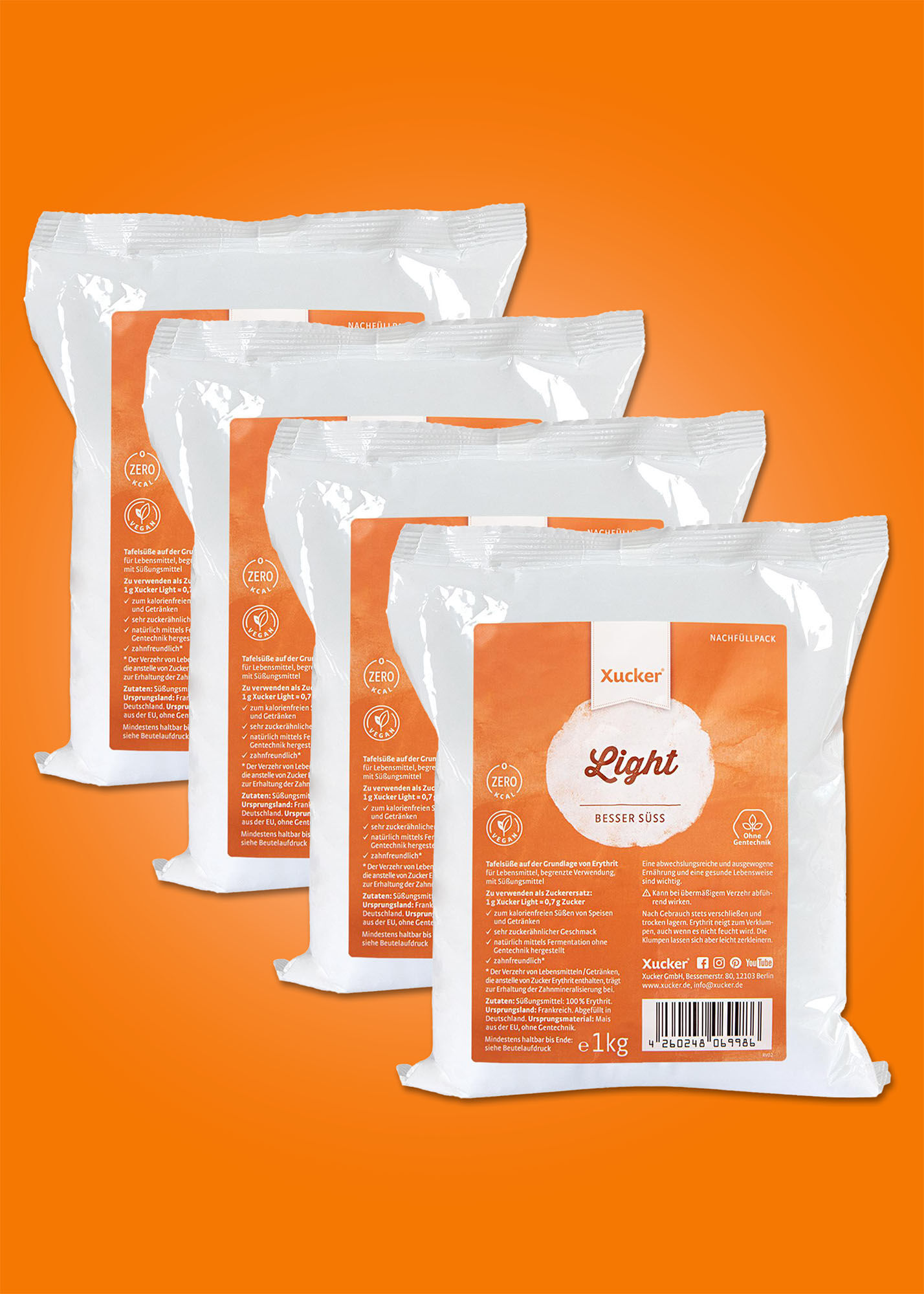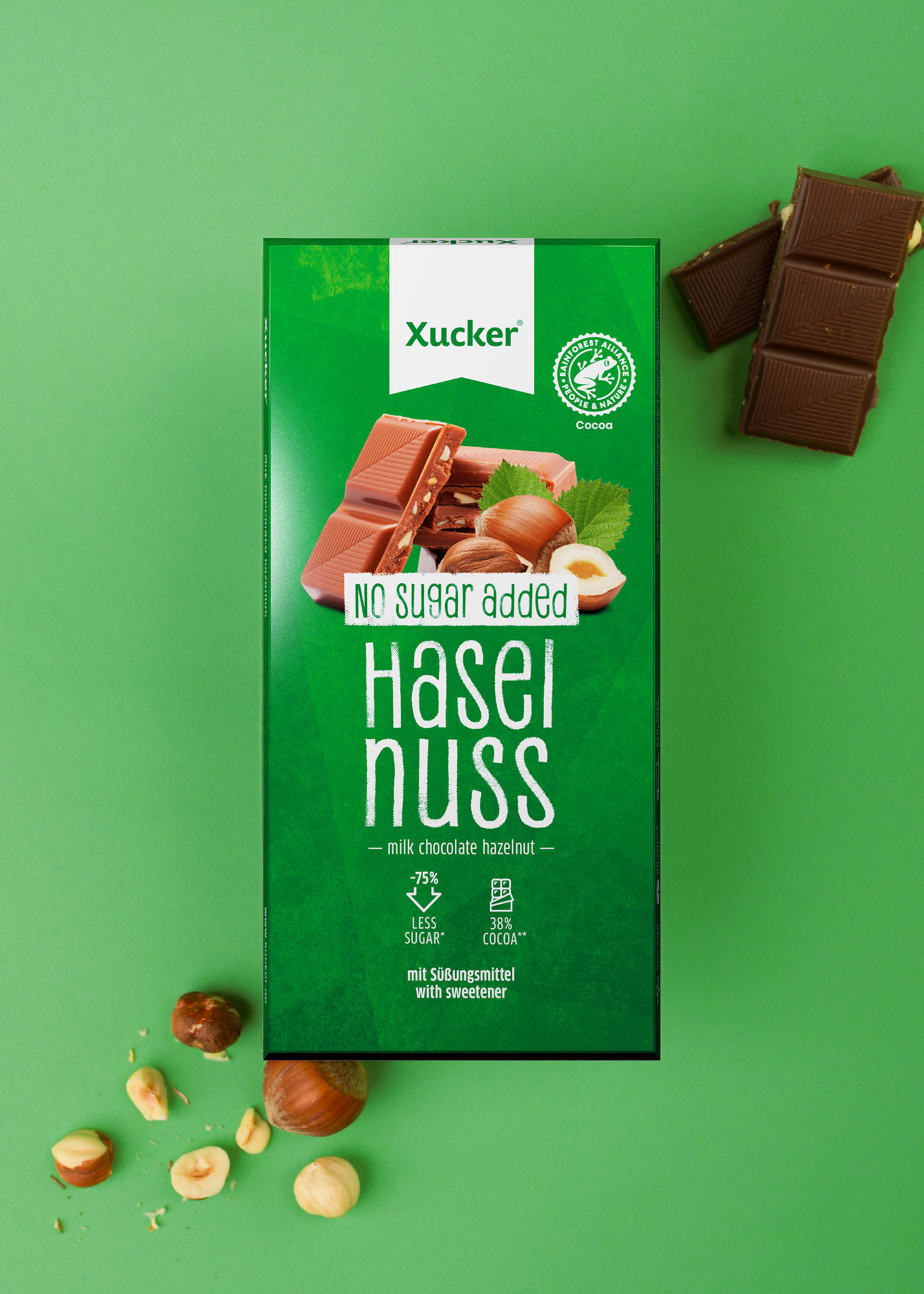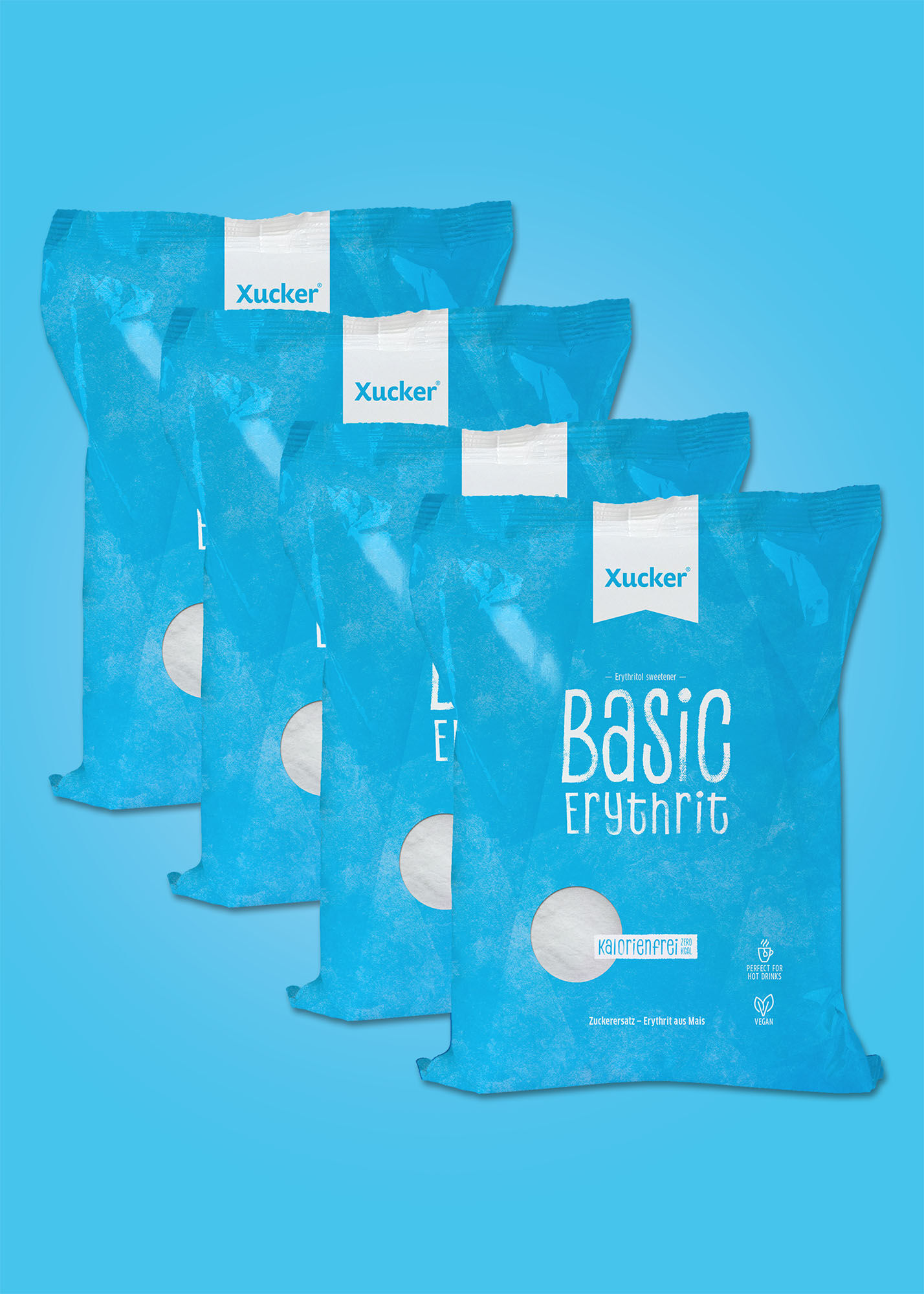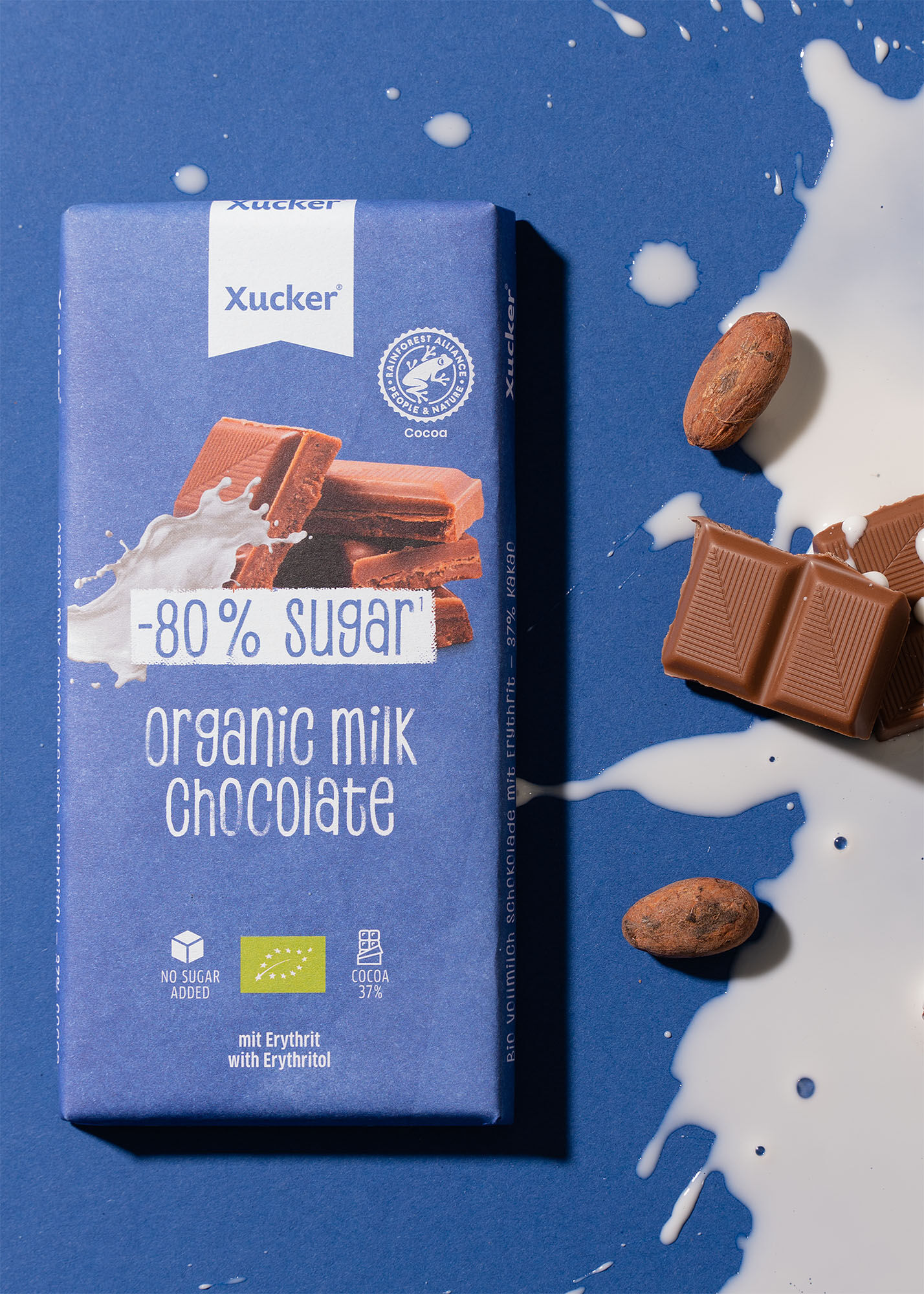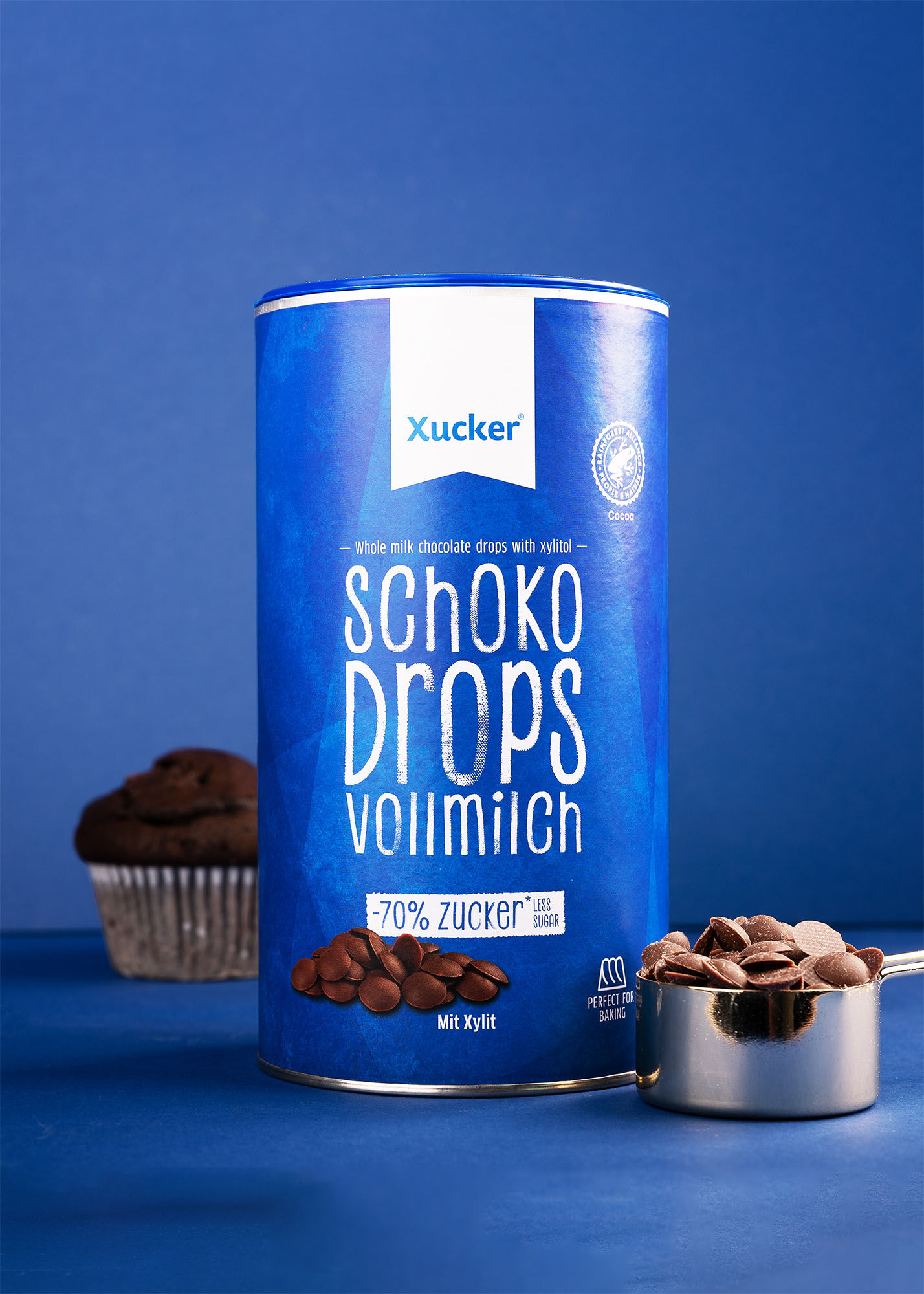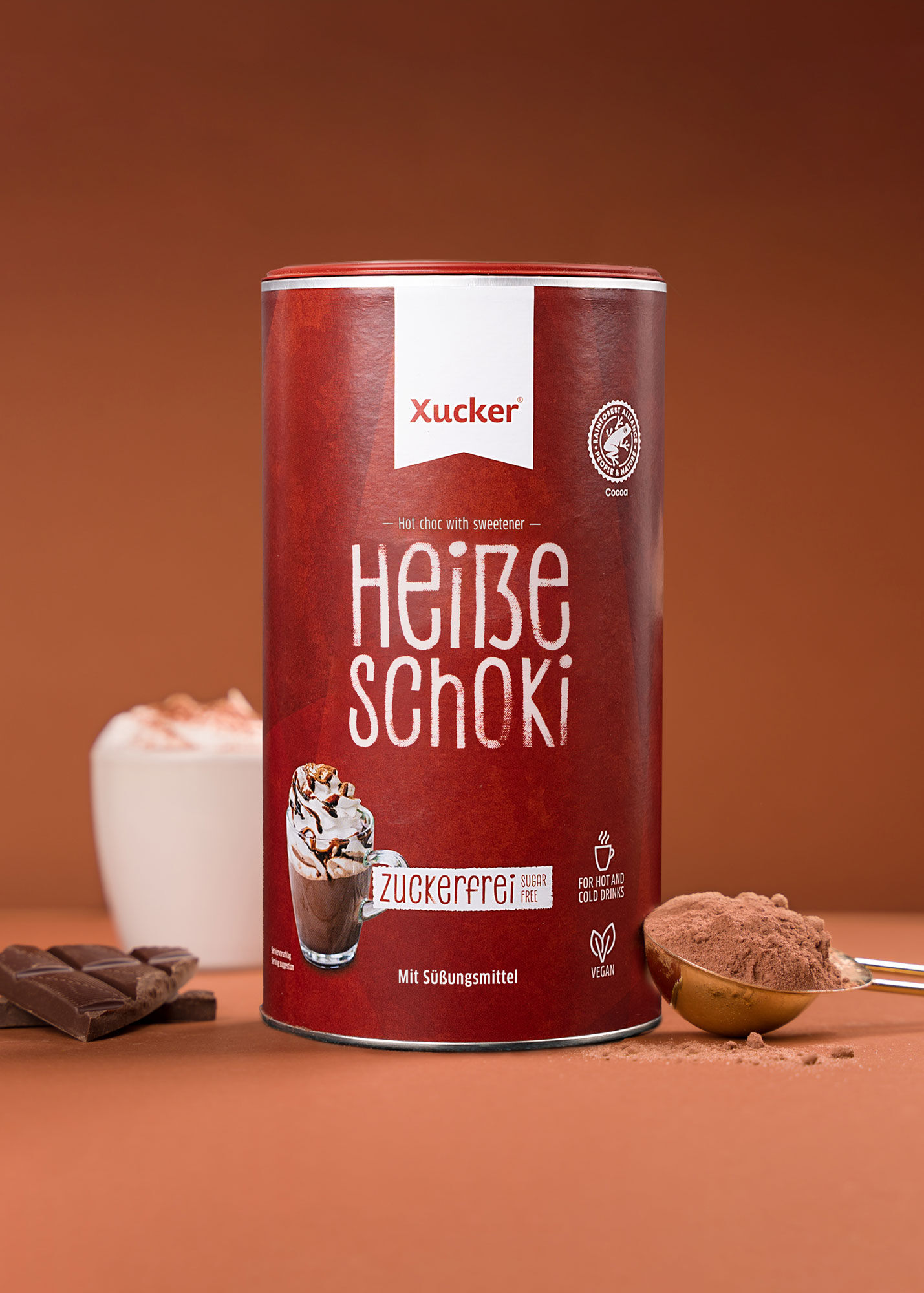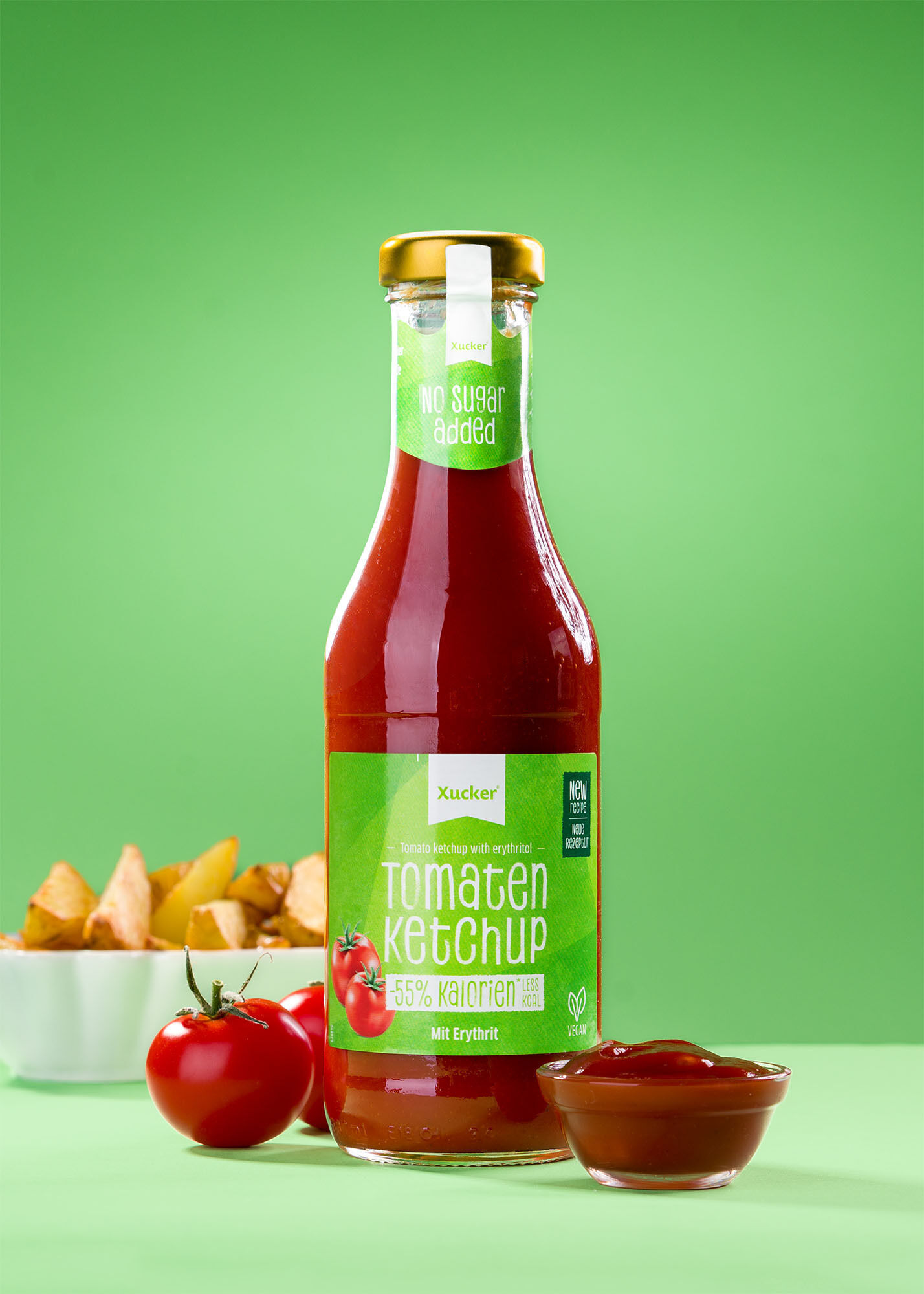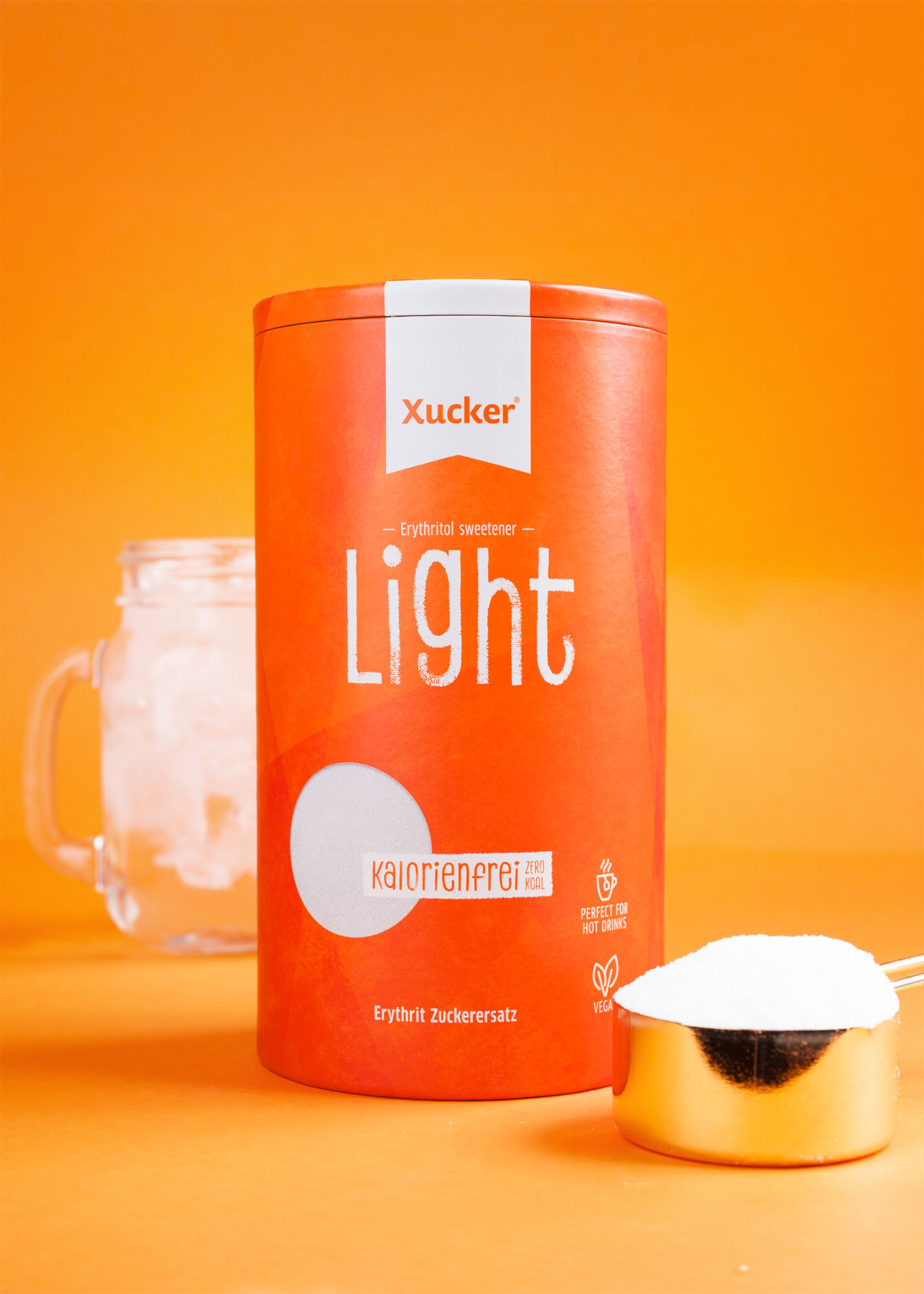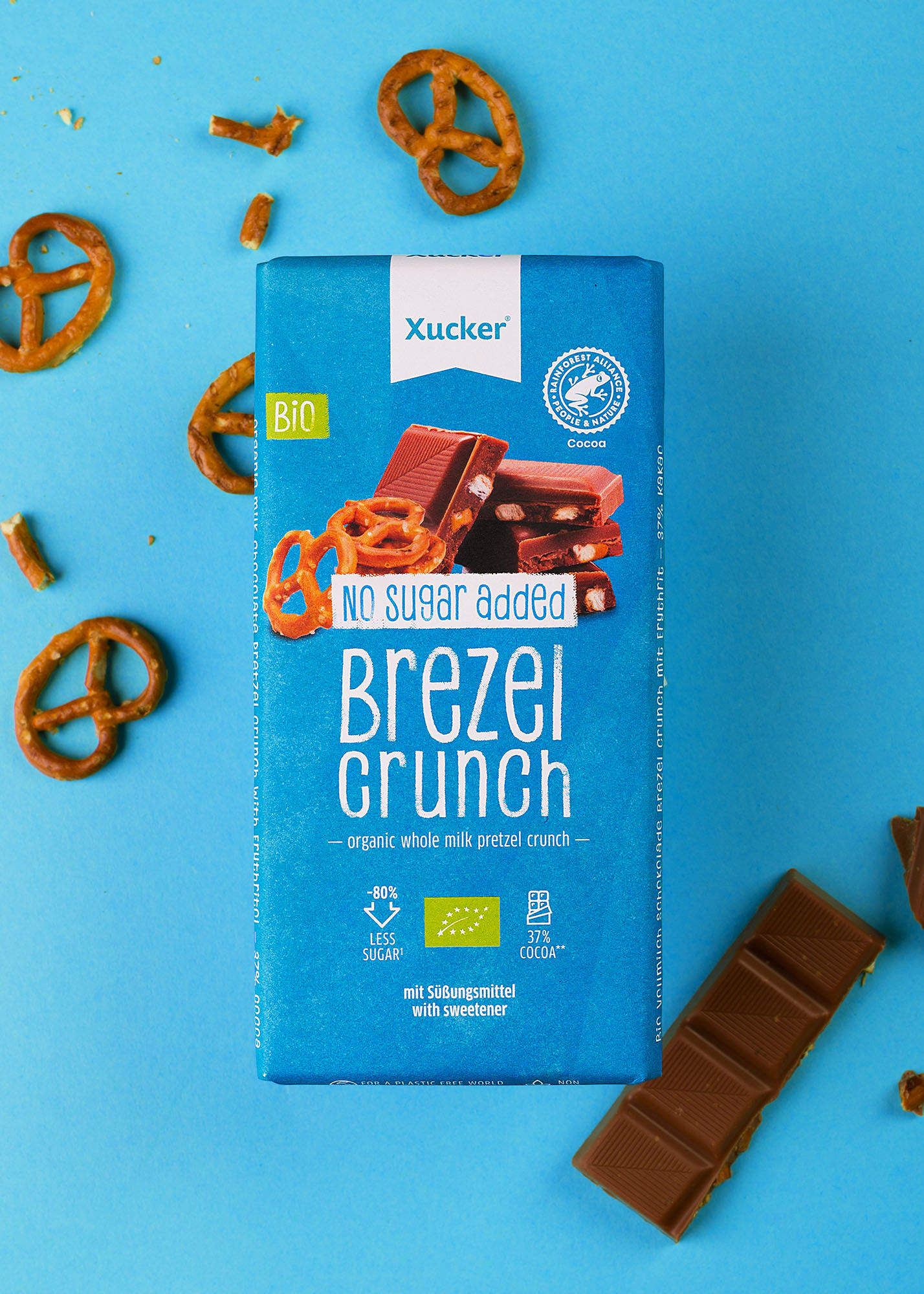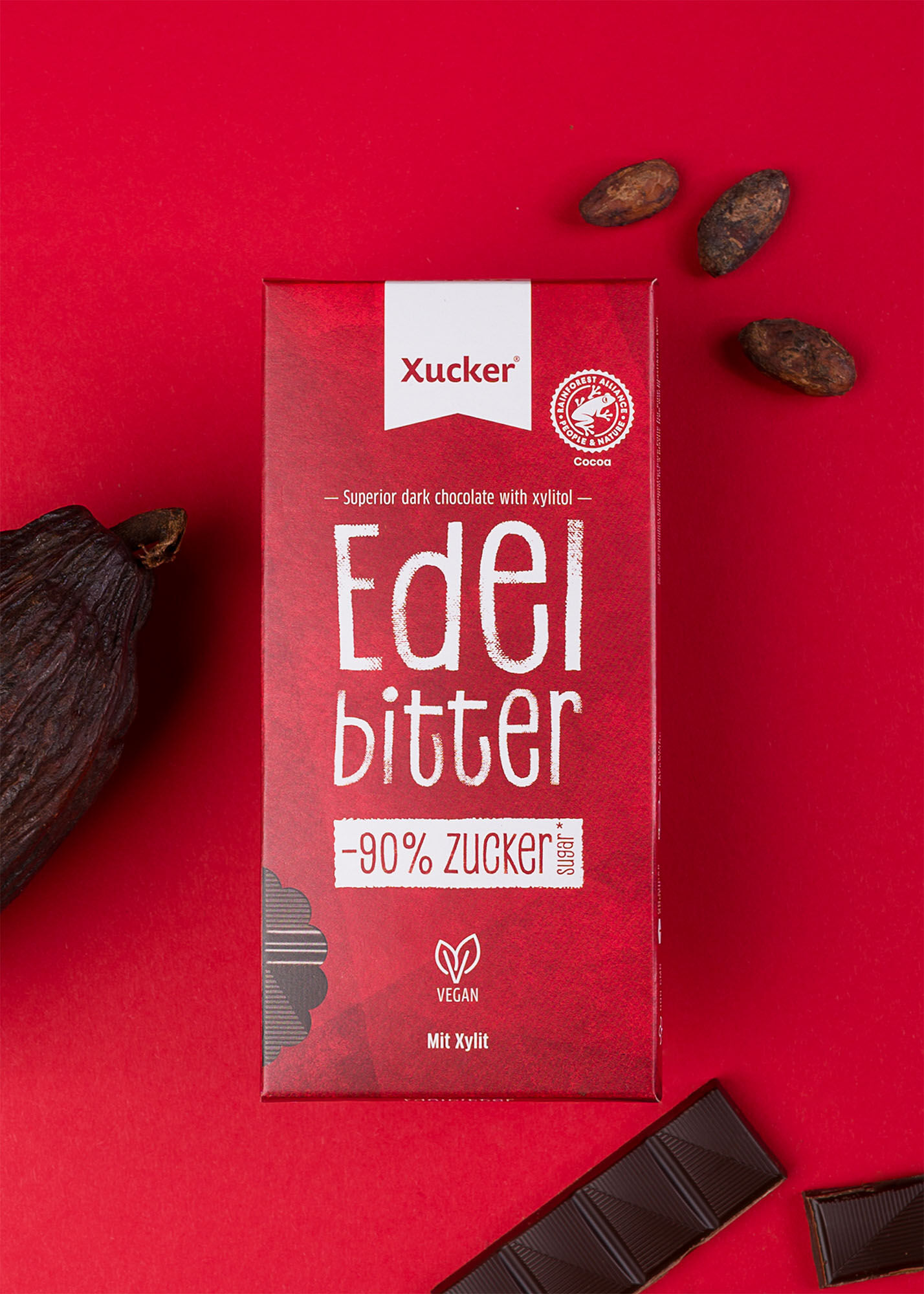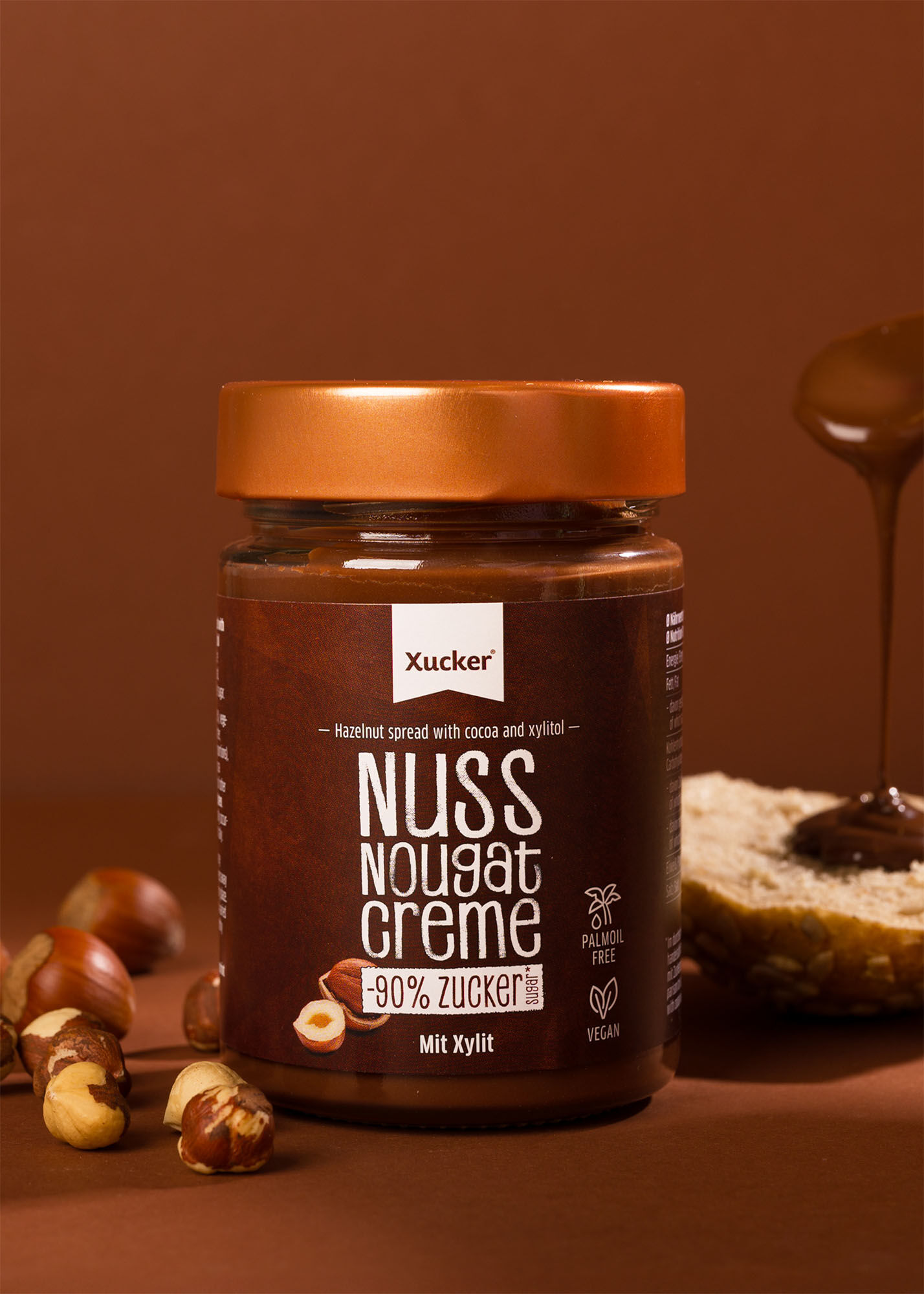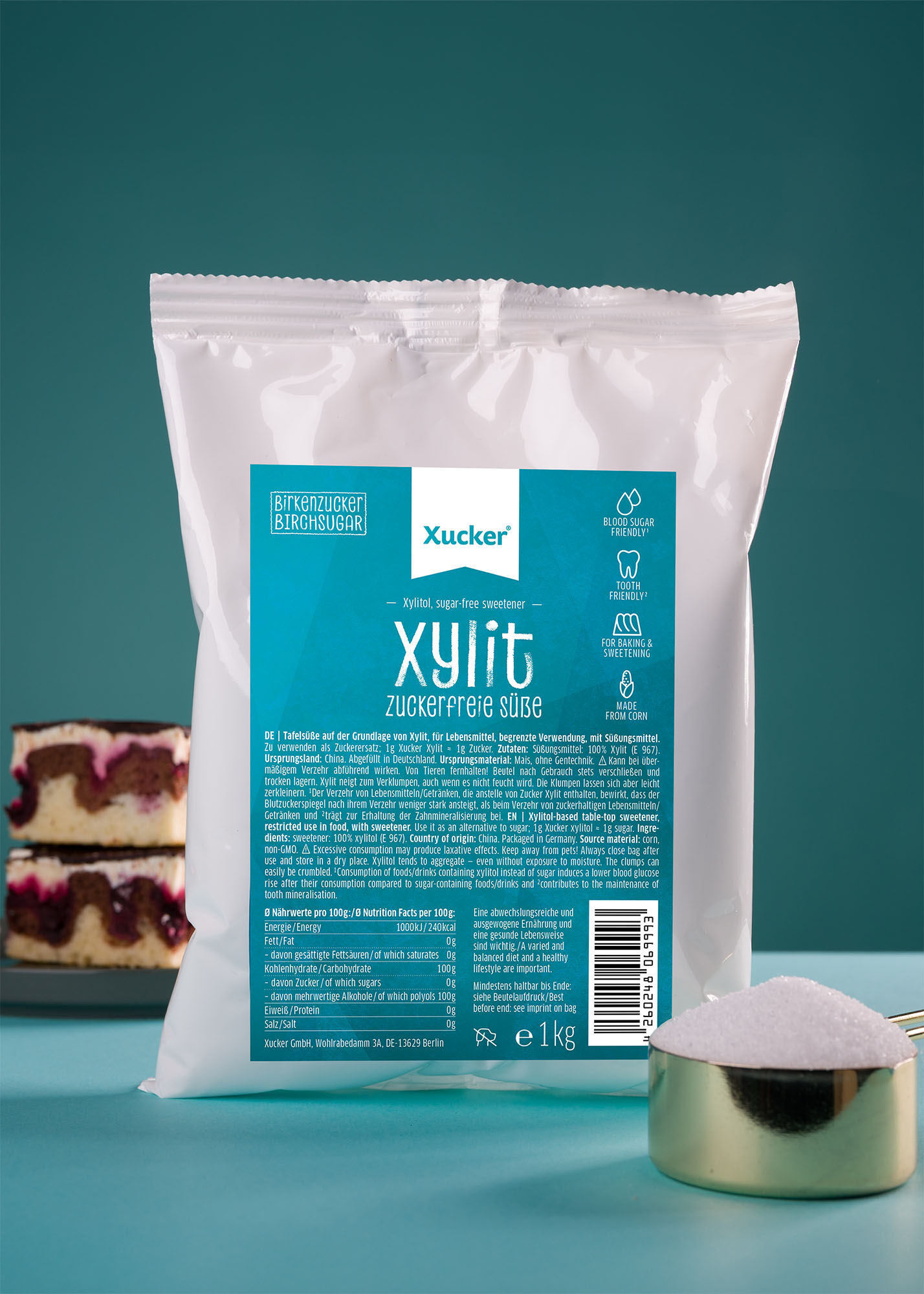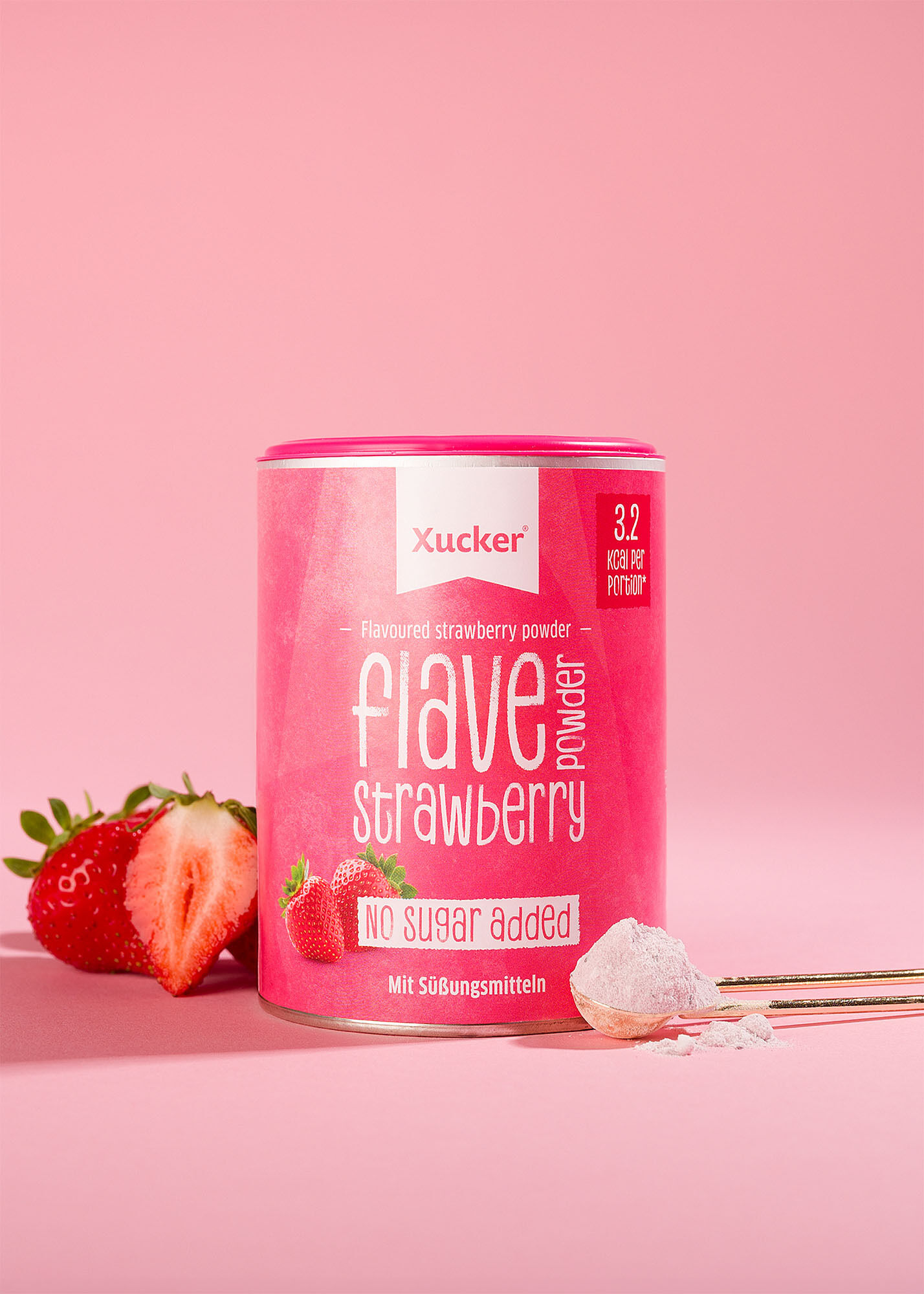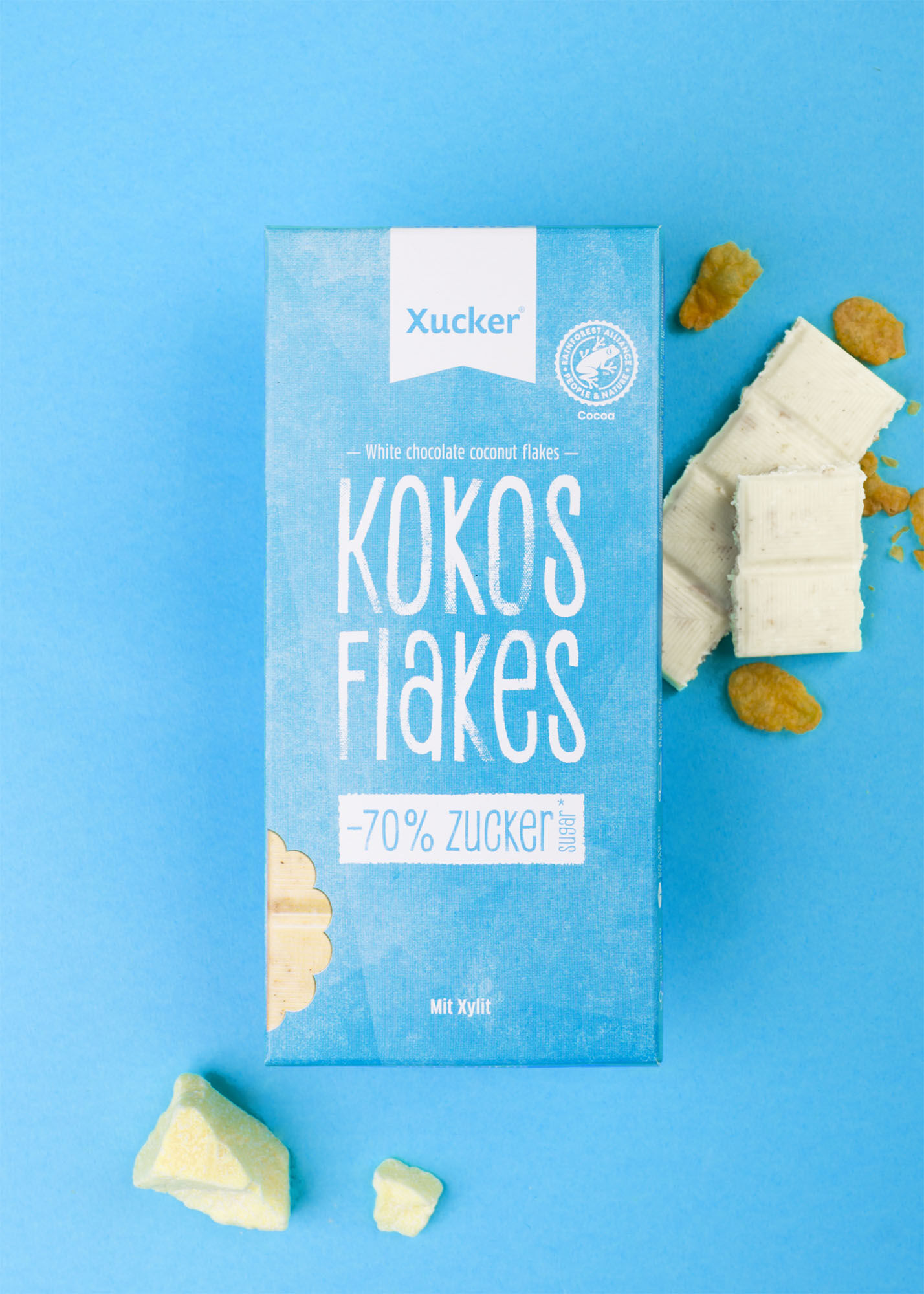
Chewing gums
Sugar-free dental care chewing gums with xylitol in various flavours.
Xucker xylitol chewing gums without artificial sweeteners
Low-calorie drinks, sweets, desserts, spreads, jams, sauces, preserves and chewing gums are often sweetened with controversial sweeteners and sweeteners such as aspartame or sorbitol. Sugar-free chewing gums from Xucker, on the other hand, get their sweetness exclusively from xylitol - and thus help to reduce dental demineralisation. The latter is a risk factor in the development of tooth decay. The positive effect is achieved if you chew 2-3 g of sugar-free chewing gum at least three times a day for 20 minutes after meals. Almost everyone has a hole in their tooth - 99% of adults in this country are affected by caries. This makes caries the most common disease in Germany. Still, the country compares favorably with the rest of the world, with nearly 80% of our 12-year-olds having caries-free little teeth. Overall, the dental health of our young people has improved significantly over the last twenty years. Many factors contribute to the development of tooth decay: excessive sugar consumption, inadequate dental hygiene, stress, and insufficient saliva, to name a few. That's a lot of things. But it also means that everyone has the opportunity to actively curb the development of tooth decay. In addition to daily dental care with a toothbrush and floss, and regular professional dental cleanings, xylitol chewing gum can also help.
Sugar-free chewing gum without titanium dioxide
Chewing gums without sugar are now well established on the market. However, many of them contain titanium dioxide, which is mainly used to whiten toothpaste, chewing gum or sunscreen. However, it is highly controversial. Critical voices point out that the substance can accumulate in the body and in this case may be linked to the development of cancer, weakening of the immune system and inflammatory processes. As long as there are no studies proving that titanium dioxide is not harmful to health, we will refrain from using the pigment. Xucker chewing gums are therefore completely free of titanium dioxide.
They may not shine as white as conventional chewing gums, but their inner values are convincing all along the line. By the way, the history of chewing gum began in the Stone Age! In terms of taste, a lot has changed since then: in the Stone Age, people made do with chewing tree resins. The first patent was granted in 1869 after the inventor Thomas Adams found an alternative to the "chewing gums" made of paraffin wax that were popular at the time. The basic ingredient for his invention was "chicle", a latex sap from a mush apple tree in Central America. Thomas Adams thus went down in history as the father of chewing gum. Over the years, many resourceful minds worked on optimizing chewing gum. In Germany, chewing gum became popular mainly due to the American soldiers stationed there after the Second World War. Today, a distinction is made between "bubble gum" for making bubbles, nicotine chewing gum against smoking, chewing gum against nausea and dental care chewing gum. Xylitol chewing gums from Xucker are the ideal dental care on the go and taste better than tree resins - we're sure of it.
From mouthwash to toothbrush: dental care is also possible with xylitol chewing gum
Brushing teeth twice a day contributes to dental health. Various utensils are used for daily dental hygiene: the classic toothbrush, the electric toothbrush, the sonic toothbrush, the interdental brush, the tongue cleaner and good old dental floss. The effect of dental care chewing gums should not be underestimated either. Xucker chewing gums are sweetened only with xylitol. Sugar-free chewing gum helps neutralize plaque acids, which are a risk factor in the development of dental caries. So if you don't always have your toothbrush in your pocket, you can use sugar-free chewing gum as an alternative - but you should still brush your teeth regularly. Afraid of the dentist? Prevent tooth decay! There are many tricks to make life difficult for tooth decay. Chewing, for example. Chewing gum sweetened with 100% xylitol has been shown to reduce plaque. Heavy plaque is a risk factor for tooth decay. To prevent this, follow the rule of thumb: ideally, you should consume 2-3 g of exclusively xylitol-sweetened chewing gum at least three times a day after meals. It is also advisable to change your toothpaste more often, as bacteria can develop resistance to the individual active ingredients. An alkaline rinse with sodium bicarbonate helps to neutralise the acidic environment in the mouth (caries bacteria like acid!). Aids such as an interdental brush and dental floss are also recommended by dentists for prophylaxis.

